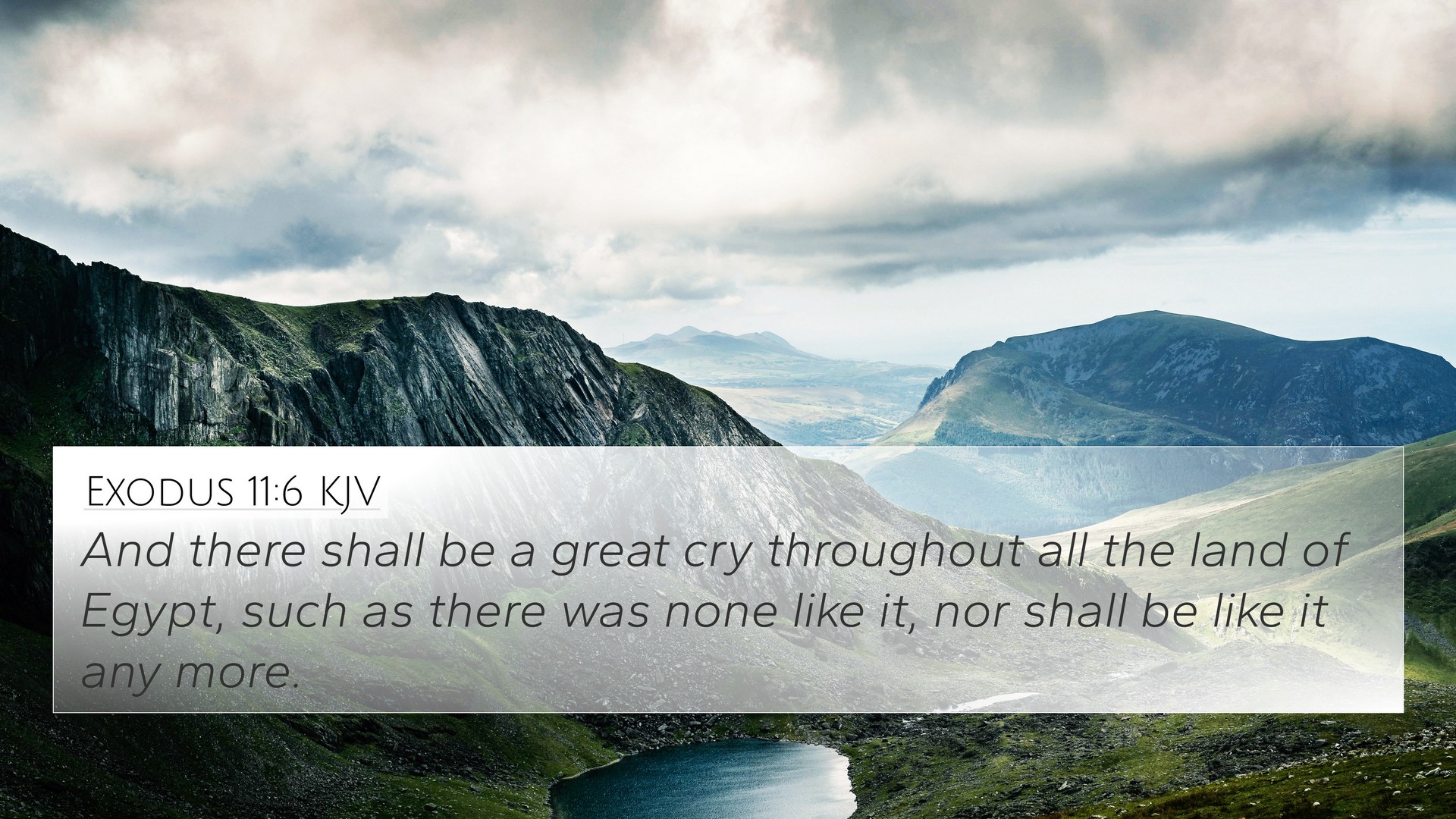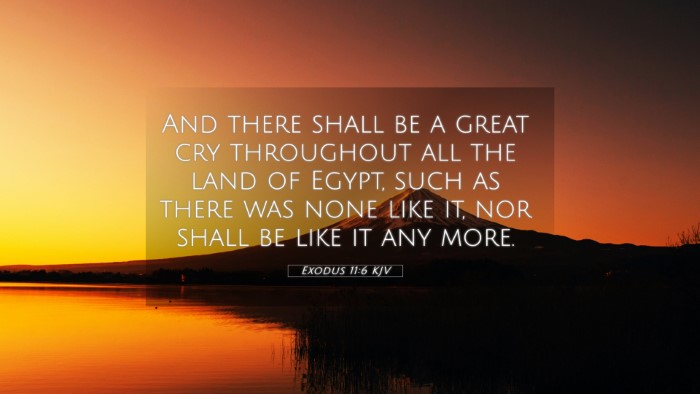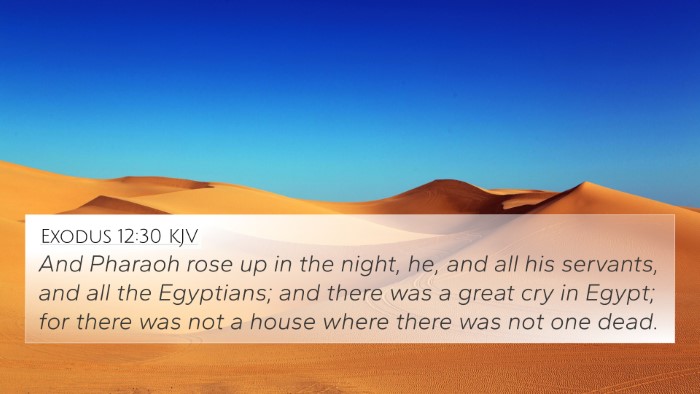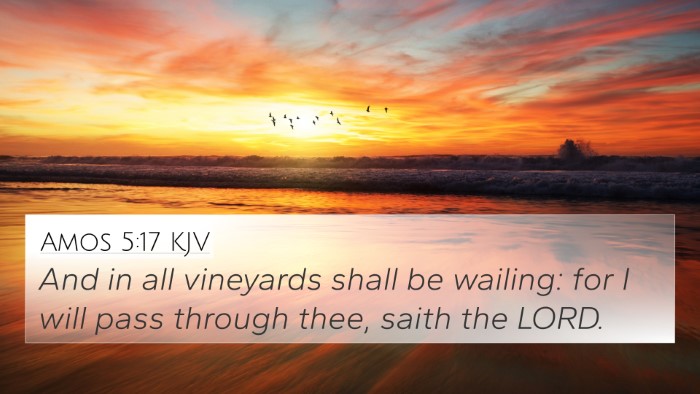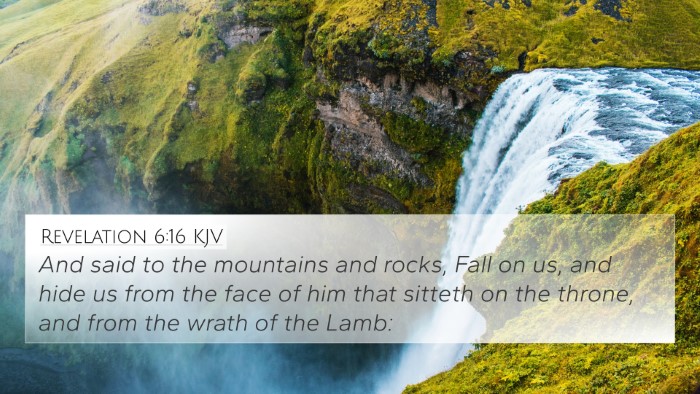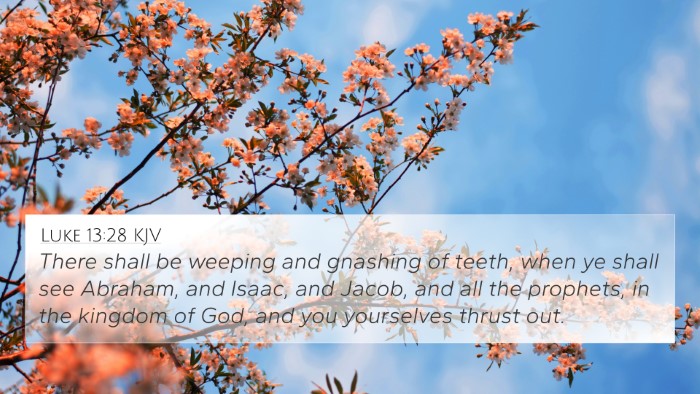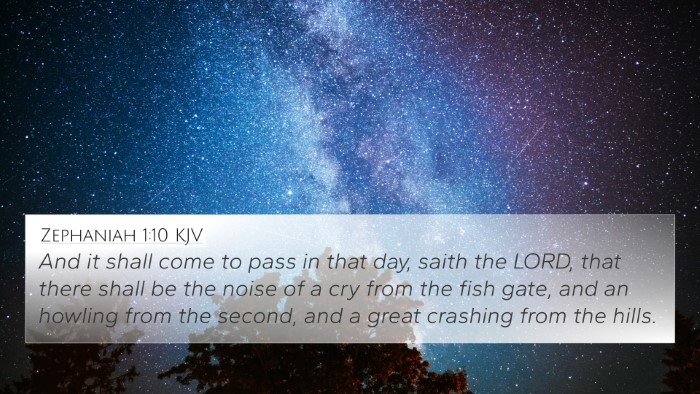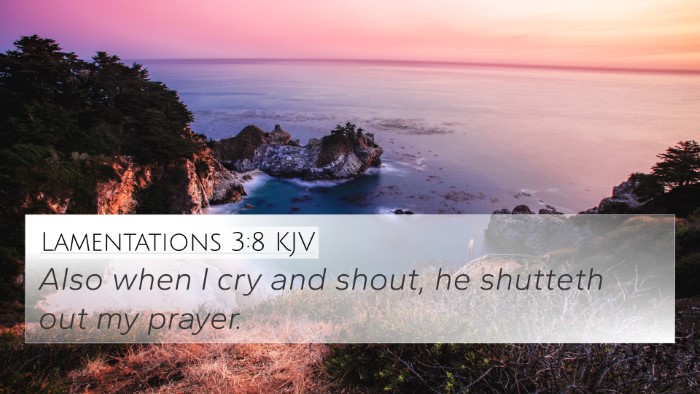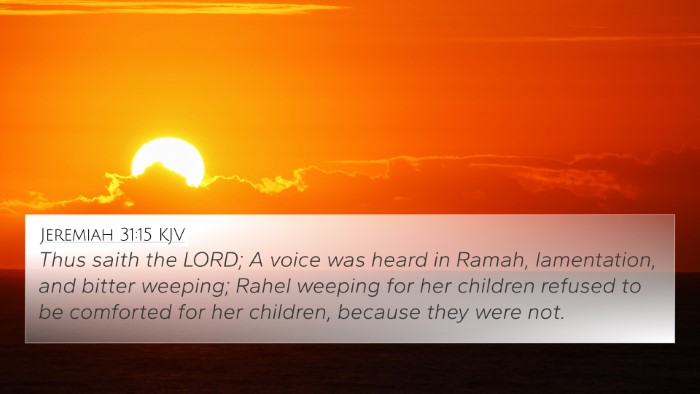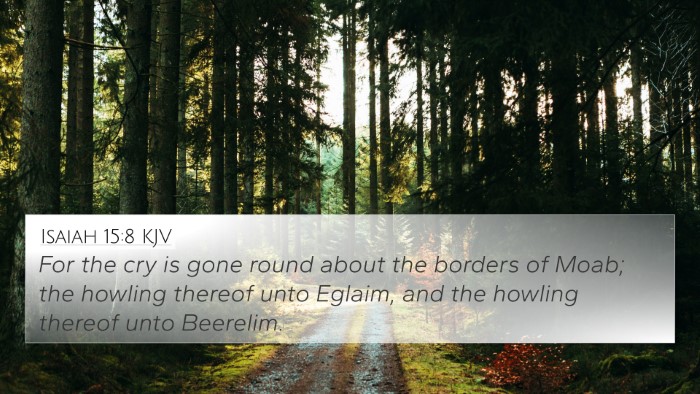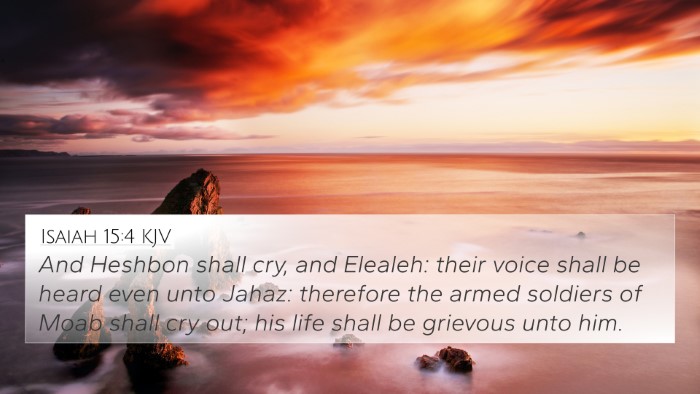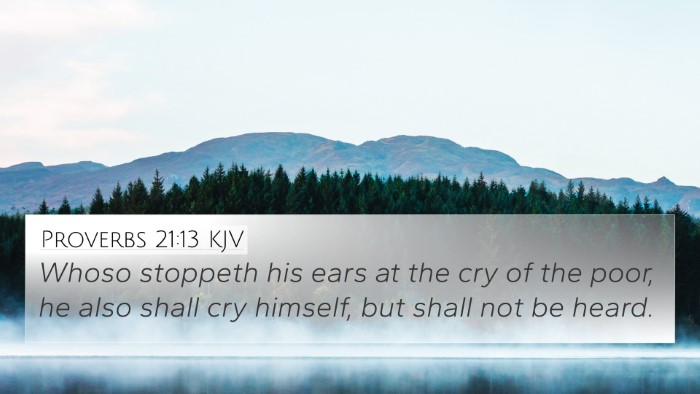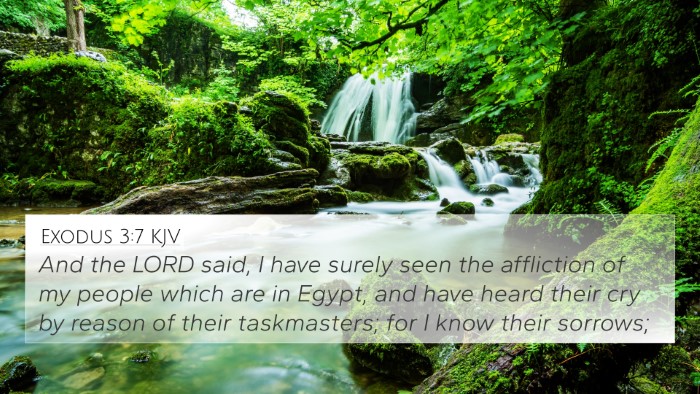Exodus 11:6 - Understanding the Verse
Exodus 11:6 states:
"And there shall be a great cry throughout all the land of Egypt, such as there was none like it, nor shall be like it any more."
This pivotal verse occurs within the context of the final plague that God would unleash upon Egypt as a means to compel Pharaoh to release the Israelites from slavery. The "great cry" that is foretold underscores the severity and unprecedented nature of the impending judgment.
Commentary Insights
Insights from notable public domain commentaries—including those of Matthew Henry, Albert Barnes, and Adam Clarke—help elucidate the meaning of this significant verse:
-
Matthew Henry's Commentary:
Henry interprets the "great cry" as a profound lament that would resonate throughout Egypt, highlighting the tragedy that this plague would cause as it claimed the firstborn of every Egyptian household. He emphasizes that this event would not only be a punishment for Pharaoh's hardened heart but also serve as a testament to God's sovereignty over life and death.
-
Albert Barnes' Notes:
Barnes notes how this cry symbolizes both physical and spiritual anguish. The destruction of the firstborn is depicted as the climax of a series of judgments that have systematically demonstrated God's power and the futility of opposing Him. He suggestively points out that the intensity of this event is unmatched in history, with implications for both the immediate audience and future generations.
-
Adam Clarke's Commentary:
Clarke expands on the reaction of the Egyptians, highlighting their complete devastation in response to the plague. He alludes to the cultural context of Egypt, where the firstborn son held significant importance, amplifying the sorrow and despair that would follow. Clarke discusses the prophetic nature of this cry, suggesting that it serves as a foreshadowing of greater events in biblical history.
Cross-References and Thematic Connections
This verse can be linked to various other Bible passages that underscore themes of judgment, deliverance, and the sovereignty of God:
- Exodus 12:30-31: The aftermath of the plague is vividly described, detailing the immediate response of Pharaoh after the tragedy strikes.
- Psalm 78:49: This verse recalls God's judgment and the sending of calamities upon Egypt, echoing the themes of divine intervention.
- Isaiah 10:24: This verse emphasizes God's power over nations, correlating with the narrative of divine judgment against Egypt.
- Romans 9:17: Here, Paul reflects on God's purpose in raising Pharaoh, asserting the theme of divine sovereignty in the history of salvation.
- Hebrews 11:28: The faith of Moses is showcased regarding the Passover, linking it to the deliverance from the death that came upon Egypt.
- John 8:34: Jesus speaks about sin as bondage, mirroring the Israelites' plight and the need for divine rescue from oppression.
- 1 Corinthians 10:11: Paul mentions these historical events as warnings, linking the Exodus narrative to present-day believers.
Thematic Bible Verse Connections
This verse can also connect with broader biblical themes, such as:
- Divine Judgment: The narrative illustrates God's capacity to enact judgment against nations and individual hearts.
- Deliverance: The cry highlights the desperation that accompanies bondage, while setting the stage for the subsequent liberation of the Israelites.
- Obedience and Disobedience: It serves as a stark representation of the consequences of rejecting God's orders, embodied by Pharaoh's repeated defiance.
- Hope in Tragedy: The eventual deliverance from Egypt becomes a symbol of hope, illustrating God's redemptive plan for His people.
Importance of Cross-Referencing
For those seeking to deepen their understanding of Exodus 11:6, engaging in a cross-reference Bible study can be immensely beneficial.
Tools for Bible cross-referencing such as a bible concordance or a bible cross-reference guide can empower one to uncover related scriptures and discern the intricate connections between bible verses that relate to each other.
In conclusion, Exodus 11:6 serves as a critical verse underscoring the magnitude of God’s power and the dire consequences of disobedience, inviting deep reflection and connection with broader scriptural themes.
